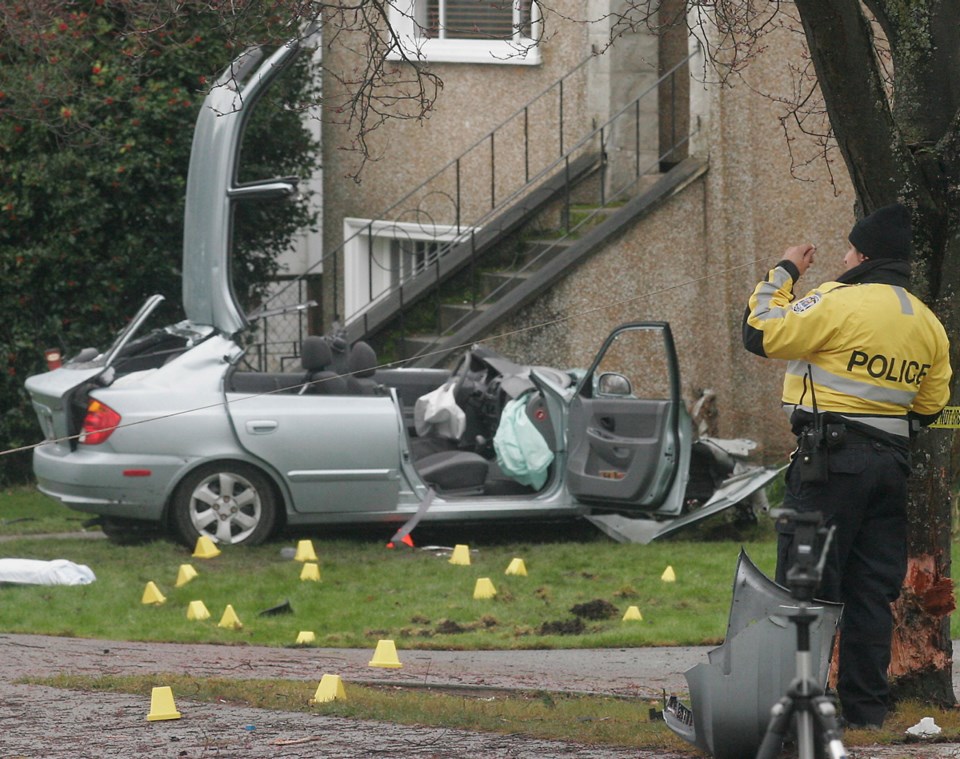Premier John Horgan and B.C. Green Party Leader Andrew Weaver should hang their heads in shame over the ICBC cap on so called “minor injuries.” The table is not just slanted in favour of ICBC, but rather is as steep as Mount Baker.
Apparently, 60 to 80 per cent of all bodily injury claims are minor in the eyes of ICBC. Anything that is not minor still allows an injured person to have a judge decide on an award.
A minor injury to an ordinary person would be a nosebleed or a short-term sprain.
That is where government has the advantage. By calling something a “minor injury,” the government expects the public to think such an injury to be of little consequence.
But that is not the way the Green/NDP government defined “minor injury.” Minor injuries are things such as a serious jaw-joint problem, a long-lasting concussion, a psychological or psychiatric condition, a pain syndrome and a whiplash injury, all lasting longer than 16 weeks but that do not prevent an injured person from doing the essentials of work or education and activities of daily living. So you can be suffering, but just not suffering enough to escape the cap.
No matter the number of minor injuries from any accident, all are lumped together. That means that the maximum compensation for pain and suffering from more than one “minor injury” is capped at $5,500.
If you go to work while injured because you cannot afford to lose income, you’ve probably put yourself in the capped amount, even though a court would award you much more.
Does the government really know that people it claims are its constituency (the ordinary worker, the working poor and single parents) are disadvantaged by arguably the worst insurance-compensation laws in North America?
Under the leadership of this government, the deficit in the $5.8-billion Insurance Corporation of British Columbia ballooned from a loss of $612 million in 2016-17 to $1.325 billion in 2017-18, according to the last annual report of ICBC. The budgeted deficit in 2017-18 was estimated to be $225 million, almost six times lower than the actual amount. How could the budget-makers at ICBC go so wrong?
The minister calls this massive loss a “dumpster fire,” when it appears to be the result of simple incompetence.
Actual claims costs in 2017-18 were $319 million lower than in 2016-17. ICBC’s investment income decreased by $153 million over that same period.
ICBC’s Autoplan premiums were not reported for the 12 months in 2016-17.
However, compared with the last listed reporting period 2015-16, the 2017-18 premiums increased by $237 million.
ICBC has no long-term debt (unlike the common practice at other very large corporations). If there really is a crisis, ICBC could have issued debt instruments to tide it over a rough patch. Instead of doing that, ICBC eviscerated its insurance offering.
That ICBC and more particularly its Green/NDP masters did not use debt instruments shows at best no imagination in solving this “crisis” and at worst no ability to run a major enterprise.
Perhaps part of the crisis is that government treats ICBC revenue like a piggy bank.
This so-called “dumpster fire” appears to be in part the product of inadequate increases in insurance premiums, “dividends” taken by government from ICBC premiums and earnings, the off-loading onto ICBC of road safety and police counterattack road blocks plus the raids verging on theft made by government on the “surplus” in significant extension-insurance profits.
The Green/NDP solution is not that which a well-run private or public company would take. Rather the approach is to throw the injured under the bus by offering a very-hard-to-get $5,500 (tops) amount for sometimes lifelong “minor” injuries.
The injured only get that amount either through negotiation with a partisan ICBC adjuster or, if dissatisfied, through an online application to the Civil Resolution Tribunal fraught with short time limits and apparently near-to-impossible conditions to meet.
Just think of how often a government would be re-elected were it to legislate that the top amount paid for vehicle damage would be $5,500, when the real cost of repair was, say, $15,000 or more?
This government feels safe in capping the top payout for what it calls minor injuries at $5,500, knowing that the vast majority of voters will never have an injury claim.
That fact allows the government to heartlessly disadvantage our citizens from having an independent, impartial court give an award rather than the peanuts allocated by a two-to-four-year-term government functionary dependent on reappointment by coming up with (one suspects) the “right” decision.
The real question is what do we get for our insurance premium? Are we to be grateful that our car is fixed when bent in an accident? Are we to be grateful that the government puts a considerable number of roadblocks in our way to being paid next-to-nothing as compensation when a sometimes major injury is arbitrarily classified as “minor”?
It’s a sad and not-well-thought-out program. Remember that when you next vote.
F. Kenneth Walton, QC, is a lawyer in Colwood.



